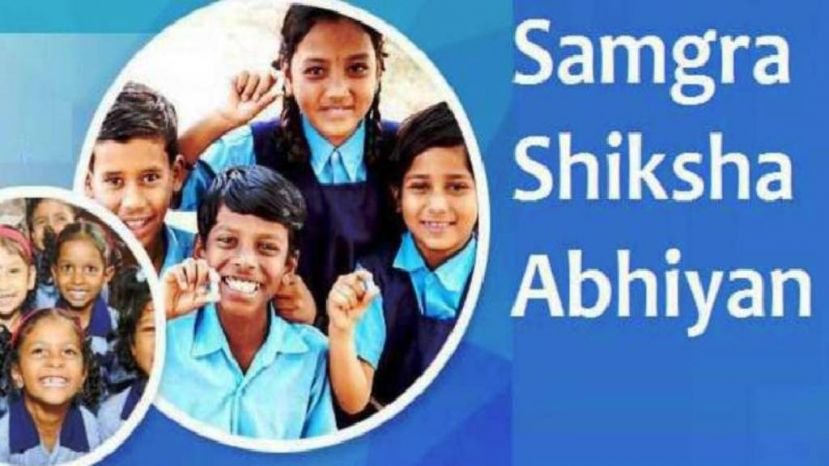By: Er. Prabhat Kishore
The New Education Policy (NEP) 2020 was adopted on 29th July 2020, which envisages the provision of quality education and equitable access to all students in a sustainable manner. During the past year and a half, schools across the world have adopted numerous innovative practices to ensure the continuity of education in the prevailing Covid 2019 pandemic. To widely disseminate school education related to quality, inclusive practices and sustainability, Shikshak Parv was organized wherein the teachers from both government and private schools shared various innovative practices adopted by their schools during and afterwards the pandemic. The initiatives were appreciated by both policy makers and practitioners.
In the light of the encouraging response and to further increase the width and depth of dissemination, a National Teacher Resource Repository (NTRR) at national level and State Teacher Resource Repository (STRR) at state levels are being created. The objective of TRR is to enhance the quality of education and highlight the contribution of educators so that they can take pride in their profession and further train many teachers in their respective states. It also aims at recognizing and appreciating the good initiatives of teachers.
Peer-to-peer learning or mutual learning of participants of the same level in a group helps in constantly improving the skills of the whole group. Peer learning is especially well-suited for sharing innovations. The peer sharing of innovative school practices among TRR participants has the potential to inspire and motivate a large number of schools and teachers across the country. Learning from each other’s experiences, teachers can be encouraged to collate their resources to improve the teaching learning process in their classrooms. Sharing innovations from time to time and on a continuous basis will provide the desired impetus towards quality of education for all students. This will help all the teachers, especially those in the remote areas, to improve their pedagogy. Amenities are not evenly distributed in our vast nation. The innovation and dissemination of such practices will help in meeting the resource constraints; facilitate peer-to-peer learning, leverage technology to disseminate best practices amongst other teachers.
The TRR will be equipped with teachers from ten themes that align with the policy objectives of NPE 2020, namely;
(1) Early childhood care and education – The foundation of learning,
(2) Foundational Literacy and Numeracy – An urgent & necessary prerequisite to learning,
(3) Curtailing drop-out rates and ensuring universal access to education at all levels,
(4) Curriculum and pedagogy in schools – Learning should be holistic, integrated, enjoyable and engaging,
(5) Teachers,
(6) Equitable and inclusive education – Learning for all,
(7) Efficient resourcing and effective governance through school complexes/clusters,
(8) Standard setting and accreditation for school education,
(9) Technology in education – NDEAR,
(10) Reimaging vocational education and skill building.
An innovative exercise by a teacher engages all the students in the classroom and makes the teaching-learning process enjoyable. A verity of practices has been applied during the Covid 2019 pandemic. Addressing the issue of connectivity, teaching children using different material available at home (Angana Me Shikshak), teaching children under an umbrella on a bike (Chhatri wale Guruji), Mera Doordarshan Mera Vidyalaya, Bal Samvidhan, Bal Sansad, Bal Bachat Bank, Question Bank and Bal Samachar Patrika for shaping the personality of the children in right direction, eco-friendly activities like “Best from waste”, alternate assessment models in lieu of regular examinations including self-evaluation, peer feedback & parent feedback. Career Mitra Portal and other innovative practices on different themes, known for improvement in quality of education needs to be propagated, which will spur the teachers across the country to innovate.
The teachers from the repository will serve as a resource from which master trainers will be identified to train the teachers of other schools. The teachers of STRR will be trained by SCERTs and those under NTRR will be trained by NCERT. A WhatsApp or other group on social media of identified teachers will be created for each theme, which will share innovative practices adapted in their schools in a virtual mode.
There is no doubt that the pandemic has badly affected the human life and created hurdle to the education of the learners, but it has also opened the door for alternative and innovative ways of learning and thinking. Efforts have been made to cope up the alarming situation with local available resources. Several methods adopted in scattered regions, when cumulated through TRR, will certainly strengthen the education system of the nation in the long run. (The author is a technocrat & academician. He holds Master in Engineering from M.N. Regional Engineering College, Allahabad/Prayagraj)







